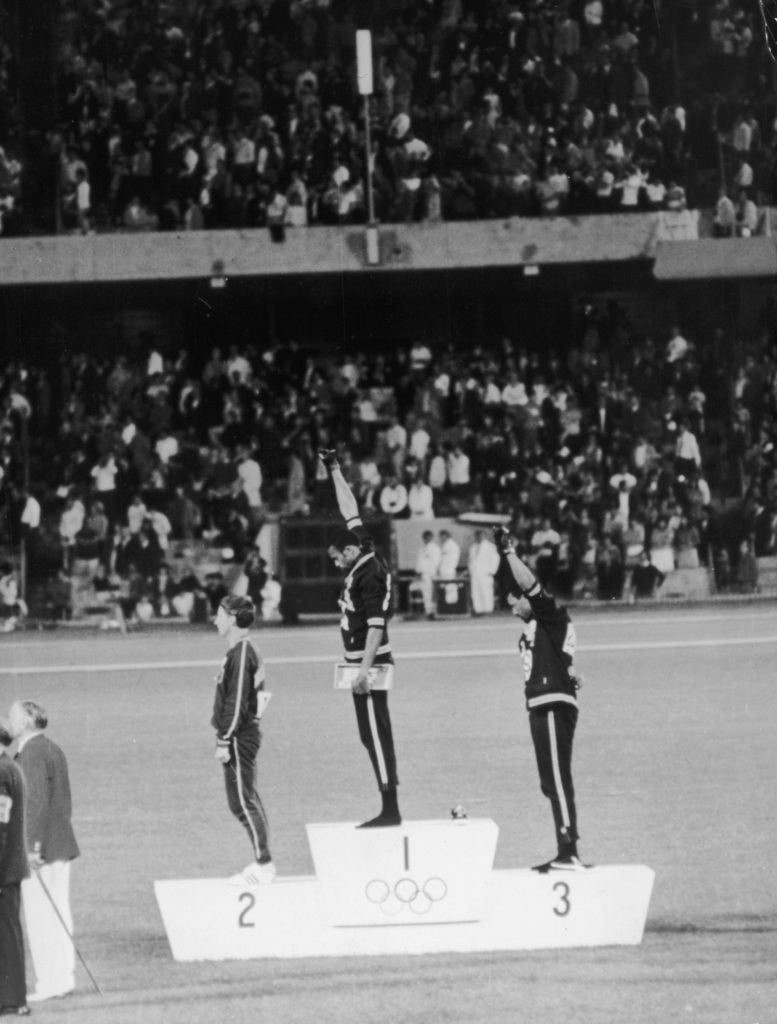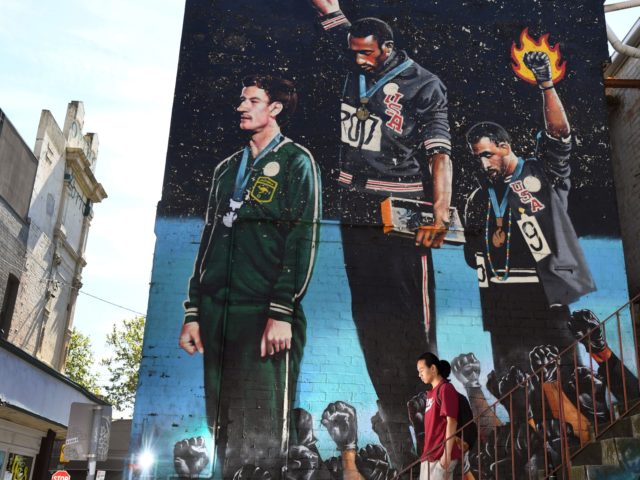Most Australian Olympians oppose protests in competition or on the medal podium, a survey showed Friday, with more than 80 percent agreeing on-field protests detract from the experience of athletes.
International Olympic Committee (IOC) Rule 50.2, forbids demonstrations or political, religious or racial propaganda in games venues.
However as Breitbart News reported, last month a group of track and field athletes said they had been oppressed and denied the “right” to open public dissent for too long, demanding the IOC retire the rule.
The Athletics Association said it’s a “unified and independent voice for elite track and field athletes around the world,” arguing the rule prevents athletes from exercising a basic human right to “peacefully protest against social injustices in the world.”
“For too long athletes have been powerless and without a real voice,” members of the association’s board, led by two-time Olympic gold medalist triple-jumper Christian Taylor, said in a statement.
The U.S. letter to the IOC was backed by 1968 Mexico Games competitor John Carlos, who raised his fist on the podium in a black power salute with compatriot Tommie Smith.
Australia’s Peter Norman was the silver medallist in their 200m race and stood on the podium alongside them, wearing an Olympic Project for Human Rights badge in support:

American track and field athletes Tommie Smith and John Carlos, first and third place winners in the 200 meter race, protest with the Black Power salute as they stand on the winner’s podium at the 1968 Summer Olympic games, Mexico City, Mexico. (Hulton Archive/Getty Images)
It would appear today’s Aussie athletes beg to differ with that stance after the Australian Olympic Committee’s athletes commission, led by pole-vault gold medallist Steve Hooker, surveyed nearly 500 current and former Olympians for their opinion.
AFP reports a clear majority said a protest on the field of play would detract from the performance or experience of athletes.
More than 85 percent of respondents who competed in the ’50s replied ‘no’ to the question: “Should the Olympics be a stage for athletes to express their views on politics, religion, sexuality, racism, gender and other forms of discrimination or other causes?”
Though the question did not specifically refer to podium protests, answers to other queries indicated a strong belief such expressions belong elsewhere.
Just under 41 percent felt the Games were not a place for athletes to make their views known at all, but almost as many said they should be able to do so, depending on the circumstances.
The most favoured way was on designated spaces like posting walls in the Olympic village, during interviews or via social media.
“Non-discrimination is one of the pillars of the Olympic movement,” said Hooker.
“We were interested in the balance between our athletes’ views on freedom of expression and their obligations to respect the rights of others.”
The next summer Olympic Games are set down for Tokyo, Japan, in 12 months time.
Tokyo’s governor said the event – postponed due to the Chinese coronavirus pandemic – must go forward next year to symbolize world unity in overcoming the health crisis, Japan Today reported.
AFP contributed to this story

COMMENTS
Please let us know if you're having issues with commenting.